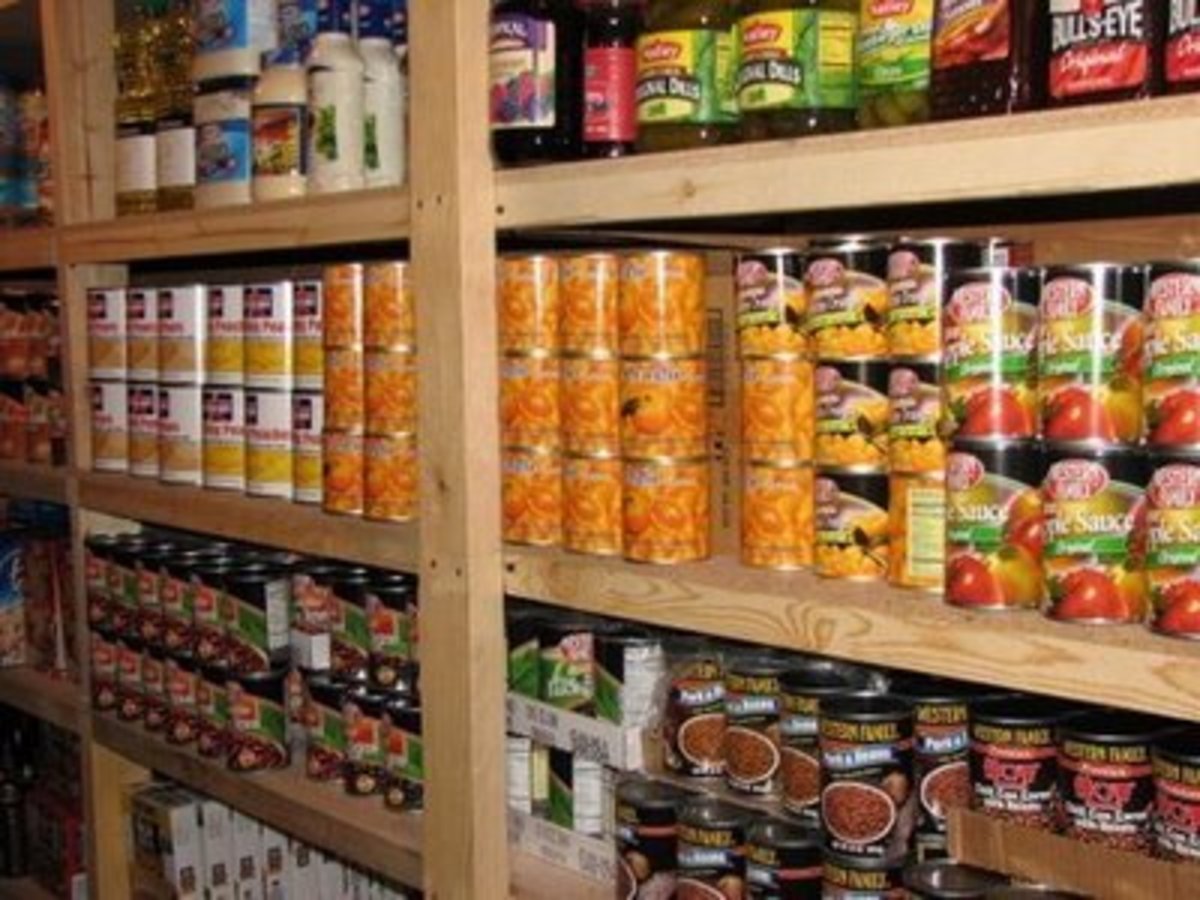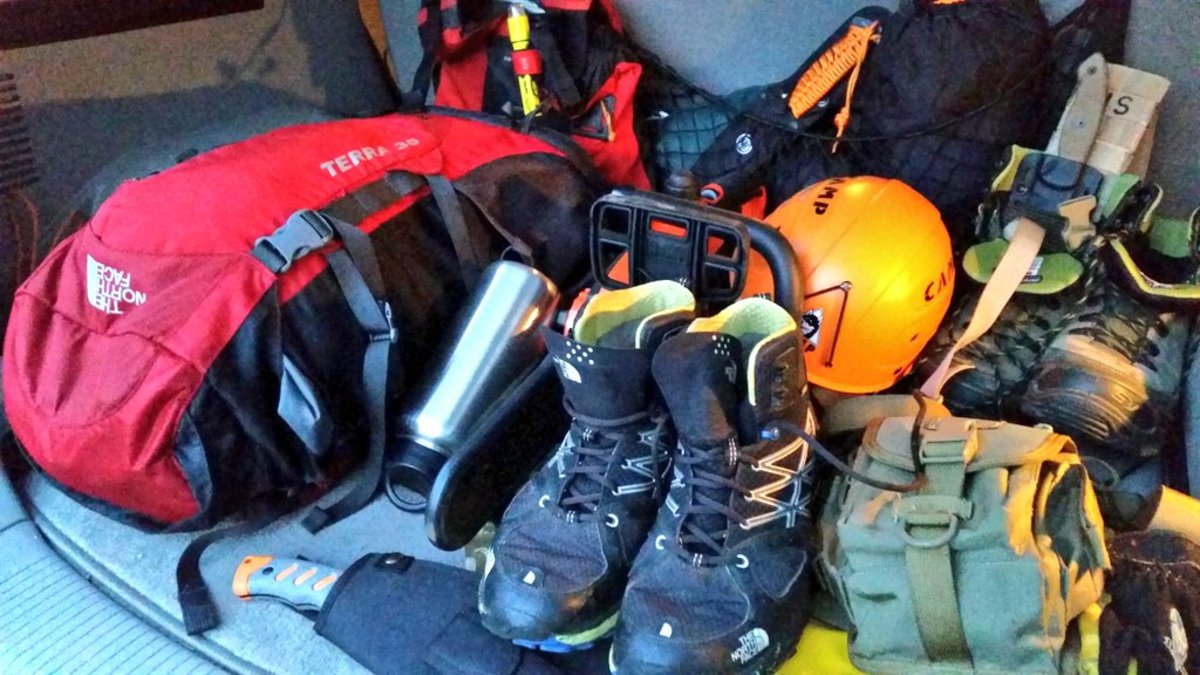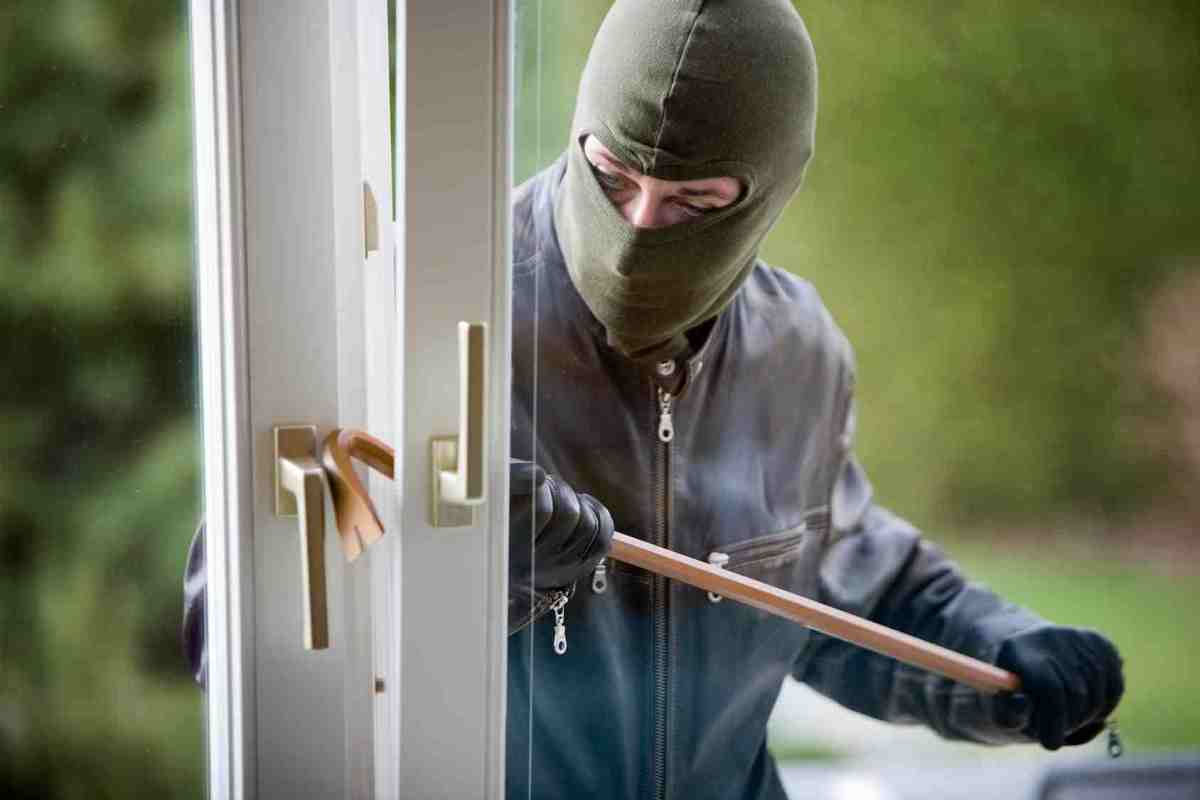Essential supplies to stockpile in case of disaster.
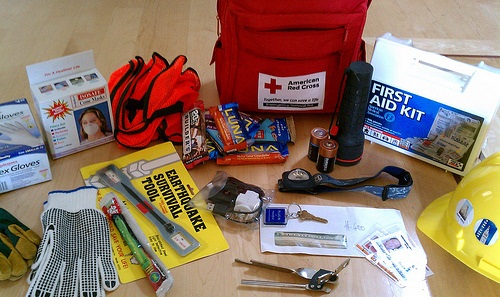
Natural disasters happen all over the world, and it often seems that in recent years they are far more common than they used to be. Whether this is because of climate change or some other as yet unknown factor is a mystery. Maybe these disasters are not happening any more frequently than they used to and it just seems that way. Whichever is the case we should all be prepared for the possibility it could happen to us one day, and therefore we should always have a carefully chosen stockpile of supplies that could ensure we survive after a disaster.
This hub intends to give you a list of basic but essential supplies that you should always have a stockpile of in case of an emergency situation, e.g. a flood, earthquake, volcanic eruption, tsunami, hurricane etc. This is not just a list of food supplies you should have in reserve, it is a list essential items you should have too, (after all, what good is having a can of food if you don't have an easy means to open it?) Of course this is just one simple and obvious example and there are many other items you should have in your emergency supplies store. Hopefully this hub will allow you to start your own stockpile and ensure you and your family have the best possible chance of surviving after a natural disaster, at least until help arrives.
Even if you can't stockpile many things due to lack of space in or around your home, you can adapt the items on this list to create an emergency grab bag, the contents of which would keep you alive for a week or so if help was not immediately forthcoming. If each member of your family has their own emergency grab bag to hand you all have a far better chance of survival.
Remember that not everything on this list will be essential to you and you might need to pick and choose the relevant items depending on where you are located in the world.
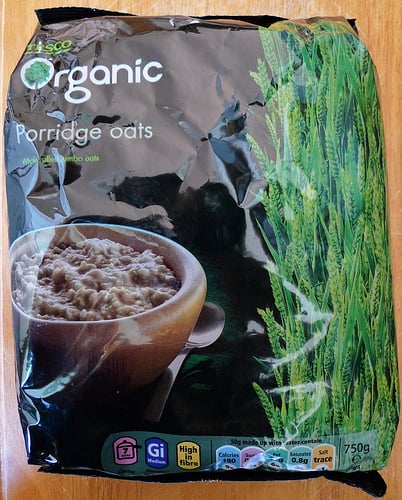
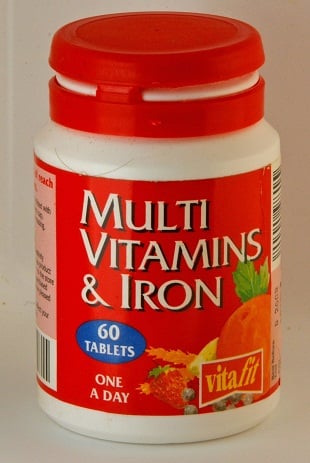
Food to Stockpile
- Porridge Oats. These will store for years if kept in cool dry place. They provide plenty of energy in the form of slow releasing complex carbohydrates. Porridge oats sustain energy levels in ways other foods do not.
- Emergency Food Bars. These are high in calories (up to 3600 per bar), so obviously well worth having in your stockpile of supplies.
- Chocolate Bars. Another high energy food that takes up only a small amount of room in your survival bag.
- Dehydrated Food Packs. These work well for the army and space shuttle crews, so they are ideal in a civilian emergency where food might otherwise be in short supply or even contaminated.
- Canned Meat. There have been cans of corned beef found from World War II that when opened were found to still be perfectly edible. Meat is a source of protein and therefore is an important food to have available.
- Dried Grains and Pulses. Beans, lentils, rice etc all store well if kept cool and dry in a dark place. They will keep a family going for days on relatively small portions of them.
- Dried Milk. Another essential and very useful food that will keep for years if stored in the right conditions.
- Water. Bottled water will keep for a long time if sealed and kept in the correct storage conditions (although I would recommend changing the stored water for newer bottles every few months.) Assuming the natural water supply ceased or was polluted for some reason fresh water would be essential. You don't have to keep gallons and gallons of it, but enough to last a few weeks would be a good idea, and during this time you could hopefully collect rainwater to top up your supplies.
- Dried Fruits. These will retain some vitamins and will store well. You might want to replace them periodically to ensure the vitamin content is retained.
- Vitamin Tablets. There is a risk you might suffer from vitamin deficiencies if the disaster relief is not fairly rapid, especially when it comes to vitamins such as vitamin C which as humans we are unable to synthesize in our own bodies.
- Salt. Another essential for humans, so worth having a good supply of in reserve.
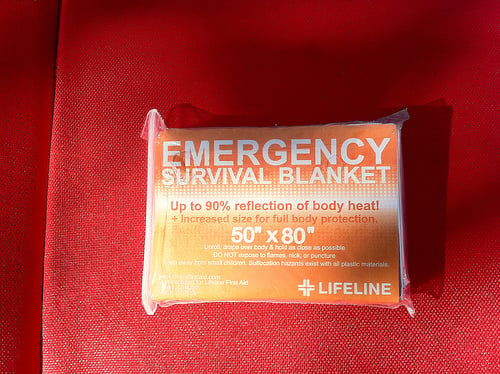
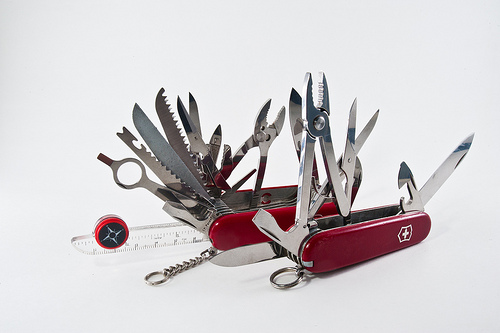
Essential Items to Stockpile
For your essential items you will ideally want at least one of each of the following:
- A Fishing Rod and/or Hand Line. If all the prepacked foods have been destroyed you might need to catch your own food, and assuming you are either near the sea, a lake or a river, a fishing rod would allow you to do this. Remember to also store some basic fishing essentials like a reel, fishing lures and plenty of hooks.
- A Survival Guide Book. For anything you don't know about how to survive this will be an invaluable tool, and quite possibly one of the most precious items in your entire survival kit.
- A Pellet Gun (and pellets). As in the case of a fishing rod, if all the prepacked foods were unavailable or had run out a pellet gun would allow you to shoot rabbits, ducks or any other wildlife you needed to kill to survive.
- A Crossbow. With most weapons you can run out of ammunition, but with a crossbow you can retrieve the arrows you have used to kill your prey even if you miss. A bullet cannot be reused once fired, but an arrow can. Even if you lost all your arrows it would not be impossible to make more.
- A Tent. I don't mean a normal domestic camping tent which would probably not last long in extreme conditions. I mean a heavy duty canvas tent that will protect you against the elements in harsh conditions.
- A Knife. You need a hunters knife, and also a good quality Swiss army knife or penknife in order to gut fish and meat, cut up portions, even kill certain prey if the initial pellet or arrow has not completely done the job. You might also need your knife for cutting vegetation, whittling arrows, cutting rope etc.
- An Axe. It goes without saying an axe will be essential if you are going to need to chop wood for fires. Whilst a saw would eventually go blunt or wear out, an axe can go on for years.
- A Bow Saw. This could be very helpful for cutting up wood in addition to an axe.
- Waterproofs. These take up very little space, but they could be the difference between life and death if they keep you dry and prevent hypothermia.
- A Flint Style Fire Starter (Ferrocerium rod). Whilst matches and lighters quickly run out and are susceptible to getting wet, a flint style fire starter can produce sparks pretty much indefinitely.
- A Tarpaulin, Waterproof Sheet or Plastic Bag to Collect Water in. This can be used suspended between trees etc to collect either rainwater, or even morning and evening dew.
- A Desalination Kit. If the area you are in is close to the sea, a desalination kit could ensure a very good supply of water if fresh drinking water is unavailable.
- Rope and Strong Twine/String. These can be helpful for securing tarpaulins, climbing, binding sticks together etc.
- A Pan or Billycan. You will need something to cook in or boil water to purify it, so have one pan suitable for use on fires in your emergency survival kit.
- Water Purification Tablets. In the same way as boiling water, these will allow you to quickly purify your supplies.
- Muslin or Fine Gauze. This will be very useful to filter impurities out of collected water before purifying it.
- A Cell Phone/Mobile Phone. This is one of the best forms of contact with the outside world, but make sure you also have a spare fully charged battery in case mains electrical supplies have failed and you cannot recharge the original battery or you do not have access to a power point.
- A Two Way Radio. Again this can be essential in order to contact the outside world in the event you can't get a signal from a cell phone/mobile phone.
- A Change of Warm Clothing. If you have a change of clothing then should your existing clothing get wet you have the option to get into dry clothes whilst your wet clothes dry out.
- A First Aid Kit. You never know when you might need a first aid kit, especially after a disaster, so keep one in your emergency survival kit.
- A Clockwork Torch/Flashlight. Another essential when you consider electrical supplies may be down and batteries might be unavailable.
- A Survival Blanket. You know those silver blankets that look like they are made of silver foil. They will take up little or no room in your survival kit, but might just save your life.
- A Clockwork Radio. One of these will allow you to find out what efforts are being made to help the disaster victims.
- Flares. The reason for the inclusion of these is obvious.
- A Can Opener. If this is not already included on your Swiss army knife you will need a can opener simply to access the contents of your canned supplies easily.
- Candles. Again, these are a source of illumination and allow you to keep a flame burning for some time if you need it in order to relight an extinguished attempt at a fire.
- A Compass and Maps. In the event you are in unfamiliar territory.
- A Whistle. So you can attract attention over a long distance.
- A Notepad and Pen. So you can leave messages for searchers if you leave the immediate area of the disaster.
Don't forget that prescriptions you or your family are on may be essential, e.g. insulin, so they should always be remembered as a last minute 'grab' in the event of a disaster, (as well as syringes and needles in the case of insulin or course.)
Before you ask how on earth you are meant to store or carry the contents of this list in the event of a natural disaster, remember what I said earlier in this hub; not all of these things will apply to every family. For a start, in many cases a desalination kit is not going to be much use to a family who live hundreds of miles from the sea. This is just an example, but you will need to adapt the information in this hub to fit in with your personal situation and storage facilities. Essentially treat this list as a guideline and adapt it to suit your needs, and the duration you believe the contents might be needed for, e.g three days, a week, two weeks, indefinitely etc.
Another Excellent Survival Article
- 72 Hr Emergency Kit ~ PERSONAL: Supplies-Medication & Documents-Money
Don’t ever take for granted that you are safe from any type of emergency. No one.. and I mean NO ONE is immune to the fact that someday, somewhere, somehow, you will need your EMKIT and no amount of money will help you. “Earthquakes and floods do not
#2 of 30 in March 2012 Challenge



